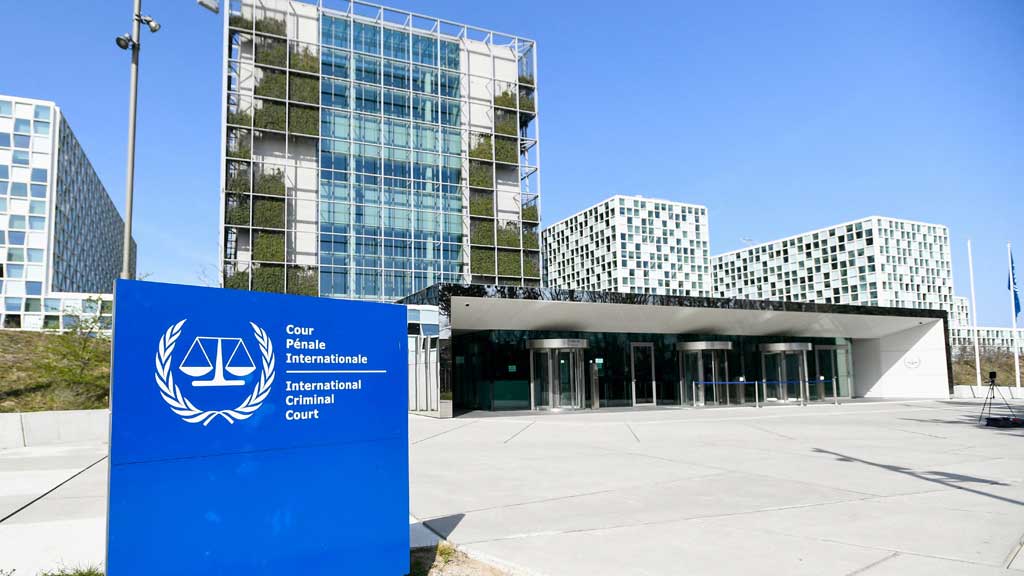WASHINGTON — In a sweeping and unprecedented rebuke of the International Criminal Court, President Donald Trump’s administration on Thursday imposed sanctions on four ICC judges involved in cases targeting Israeli and American nationals, intensifying tensions between Washington and the international tribunal based in The Hague.

U.S. Secretary of State Marco Rubio announced the sanctions against Judges Solomy Balungi Bossa of Uganda, Luz del Carmen Ibanez Carranza of Peru, Reine Adelaide Sophie Alapini Gansou of Benin, and Beti Hohler of Slovenia. In a statement, Rubio condemned the ICC for what he described as “illegitimate and baseless actions” in pursuing investigations into U.S. troops in Afghanistan and the recent issuance of an arrest warrant for Israeli Prime Minister Benjamin Netanyahu.
“As ICC judges, these four individuals have actively engaged in the ICC’s politicized campaign against the United States and our close ally, Israel,” Rubio said. “The ICC continues to assert unchecked authority, targeting democracies while shielding repressive regimes.”
The ICC responded strongly, denouncing the move as a deliberate attack on judicial independence and a threat to the rule of international law. The court said the sanctions undermine its efforts to deliver justice for victims of war crimes and crimes against humanity.
Judges Bossa and Ibanez Carranza have served on the ICC bench since 2018 and were part of a 2020 appeals chamber decision that allowed the court’s prosecutor to formally investigate alleged war crimes by U.S. forces in Afghanistan. Although that probe was deprioritized in 2021 in favor of examining Taliban and Afghan government abuses, it remains a source of U.S. frustration.
Judges Alapini Gansou and Hohler were among those who authorized the arrest warrants issued last November for Netanyahu, former Israeli Defense Minister Yoav Gallant, and Hamas leader Ibrahim Al-Masri. The ICC alleges that the men committed war crimes and crimes against humanity during the conflict in Gaza. Israel, which is not a party to the Rome Statute, has rejected the court’s authority.
The Trump administration’s latest measures follow earlier sanctions in 2020 targeting then-ICC prosecutor Fatou Bensouda and her top aide over the Afghanistan investigation. In January, the U.S. House of Representatives passed a resolution condemning the ICC’s decision to pursue Netanyahu, signaling broad Republican support for Israel.
Human rights groups reacted with alarm. Liz Evenson, international justice director at Human Rights Watch, called the sanctions a “flagrant attack on the rule of law” and said they were part of a broader strategy by Trump to undermine democratic norms both internationally and domestically.
“These sanctions punish independent judges for doing their jobs—upholding international law and pursuing accountability for victims,” Evenson said.
The penalties block the judges from accessing assets or conducting financial transactions within the U.S. banking system, which could severely affect their personal and professional lives. However, the Treasury Department issued a general license allowing the winding down of existing transactions through July 8, provided funds are held in a blocked, interest-bearing account in the United States.
The action comes as the ICC faces growing internal and external challenges. Chief Prosecutor Karim Khan, already under U.S. sanctions, stepped aside temporarily in May amid a United Nations probe into alleged sexual misconduct.
Established in 2002, the ICC is mandated to prosecute genocide, crimes against humanity, and war crimes committed on the territory of member states or referred by the U.N. Security Council. The United States, Israel, Russia, and China are not members, and none recognize the court’s jurisdiction.
Despite that, the ICC has pursued high-profile investigations in recent years, including the Israel-Hamas war, Russia’s invasion of Ukraine, and human rights abuses in Myanmar, Sudan, Venezuela, and the Philippines. It has issued arrest warrants for Russian President Vladimir Putin and Netanyahu—warrants that have drawn fierce opposition from both countries, which deny the allegations and reject the court’s authority.



